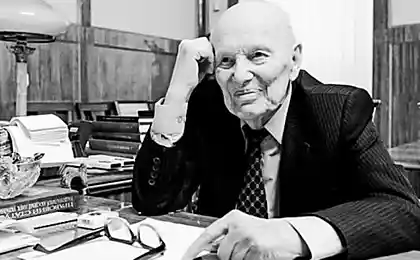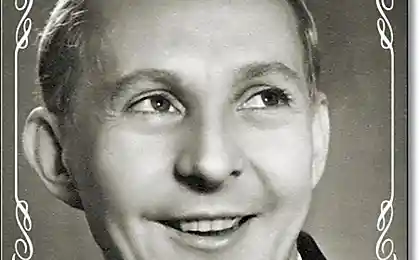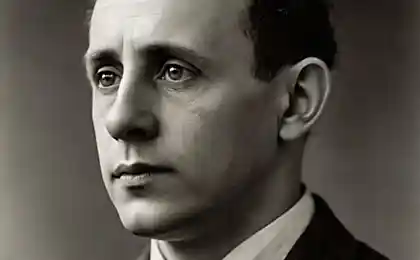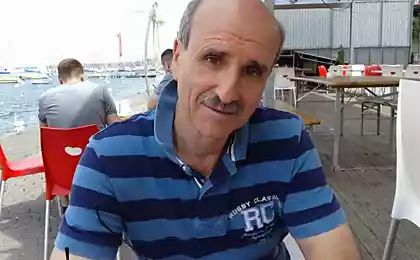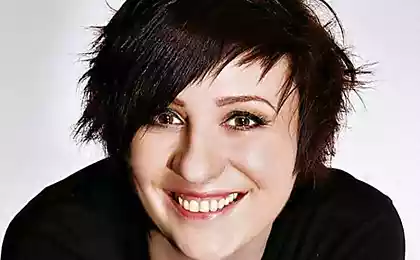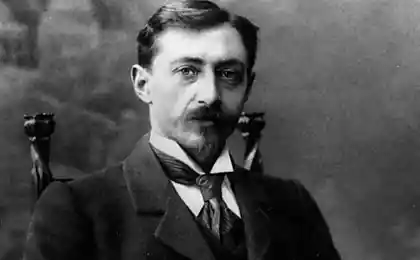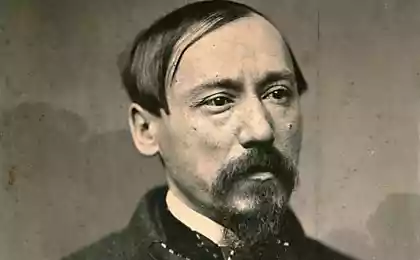1445
Boris Pasternak and his life
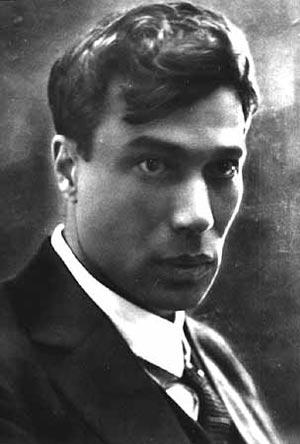
125 years ago in Moscow to a Jewish family of the artist and pianist born future Nobel Prize for Literature Boris Pasternak. The poet grew up in a circle of friends of intelligent parents: artists, musicians and writers. As a child, he met with Levitan, Serov, Vrubel, Scriabin, Rilke, Polenov, Korovin, Kliuchevsky and many other talented celebrities. Pasternak said that since February 23, 1894, he was beside himself "without major interruptions and failures." This day he remembered that on a visit to Pasternak Leo Tolstoy came to listen to music. At the piano sat the mother of Boris Pasternak Rosalia.
Artistic abilities in young Pasternak appeared early, he was fond of music and even wrote several sonatas for piano.
Peal improvisations carried
Night, flame, fire thunder of drums,
Boulevard under the shower, the sound of wheels,
Street life, the fate of individuals.
Already ten years Boris Pasternak understood what it means to be a Jew: he was not enrolled in the first grade, despite the fact that the boy had successfully passed the entrance exams. The thing is that the Moscow Fifth gymnasium, where they wanted to give the boy to learn, strictly follow the proportions of not more than 10 Jews in the 345 pupils. Fortunately, for the next year at school free up space, and Boris was enrolled immediately in the second class.
The most crucial moment in his life, Boris Pasternak includes cases that happened to him on the feast of the Transfiguration August 6, 1903. On this day, he accidentally fell from his horse and miraculously survived. Pasternak broke his hip, which is why lifelong limp, but tried to hide it. Looking back on this case, he wrote that, waking up in a cast, "all experienced and repeated gallop and downs - and first discovered that words can also submit musical rhythm." This day is called Pasternak transformation: he woke poet and musician. And if you know about the musical childhood and adolescence of the writer, it becomes clear where in his poetry and prose such melodic language.
Father Boris Leonid Pasternak believed that "if a person is given, and he will choose." Not right after high school, but the future Nobel laureate "select" the historical-philological department of Moscow State University, where the reference point of his poetic experience.
I life in verse sobyu so tight,
To be able to have a spoon.
Poetry was for Pasternak's the most affordable way to bring harmony to your inner world. He aspired to each poem contained a new thought, a new picture, which is why the line of his works is actuated the reader's imagination.
The first collection of his poems "Didymus in the clouds" was released in 1913, but Pasternak himself had a low opinion of his early works, which radically rewrote and included in the series "The initial time to" in 1928. By 1928, Boris Pasternak wrote not only verses and poems, and prose. In that time period, a small biography of the future disgraced writer, when he officially recognized and even actively participates in the activities of the Union of Soviet Writers. Gradually the attitude of the authorities to Pasternak change, it will blame the "world view, not of the era" and "detachment from life", which will lead to even more tragic detachment writer. In these difficult years, he will help the translations that will be the main source of income, and later the main reason for repentance: "Half of life given to translations - his most fruitful time».
Hum subsided. I went on stage.
Leaning against the doorjamb,
I catch a distant echo,
What will happen in my lifetime.
Not only the evaluation of the writer, but also reviews of literary critics, the pinnacle of creativity Boris Pasternak recognize novel "Doctor Zhivago". This book is called both "brilliant failure" and "complete failure", and "the main novel of the XX century", it is referred to as a book, for which Pasternak was born and which cost him his life. This is a novel about the revolution, in which interpreted it up, using symbolism to talk about its root causes. The hero of the book did what he could not Pasternak left the country after the revolution, and did not cooperate with the new government. In the Soviet Union the book to print, of course, refused. "Do not read, but condemn!" - Under this name entered the history of the campaign against the anti-Soviet novel "Doctor Zhivago", which was released overseas. In our country, a book published 33 years.
October 23, 1958 Pasternak was awarded the Nobel Prize "for significant achievements in modern lyric poetry, as well as the continuation of the traditions of the great Russian epic novel." Reaction to the Nobel Prize was an exception Boris Pasternak of the Writers' Union, some of his "friends" even asked deprive Pasternak Soviet citizenship. Shortly thereafter, the disgraced writer was diagnosed with lung cancer and 30 May 1960 Boris Pasternak died at home, surrounded by loved ones. The last days he spent with his family, summing up the life and thinking about his difficult fate: global recognition, damaged relationships with friends and full of uncertainty at home.
But conceived routine action,
And the inevitable end of the road.
I am alone, everything is drowning in hypocrisy.
Life to live - not a field to pass.
Your text to link ...






